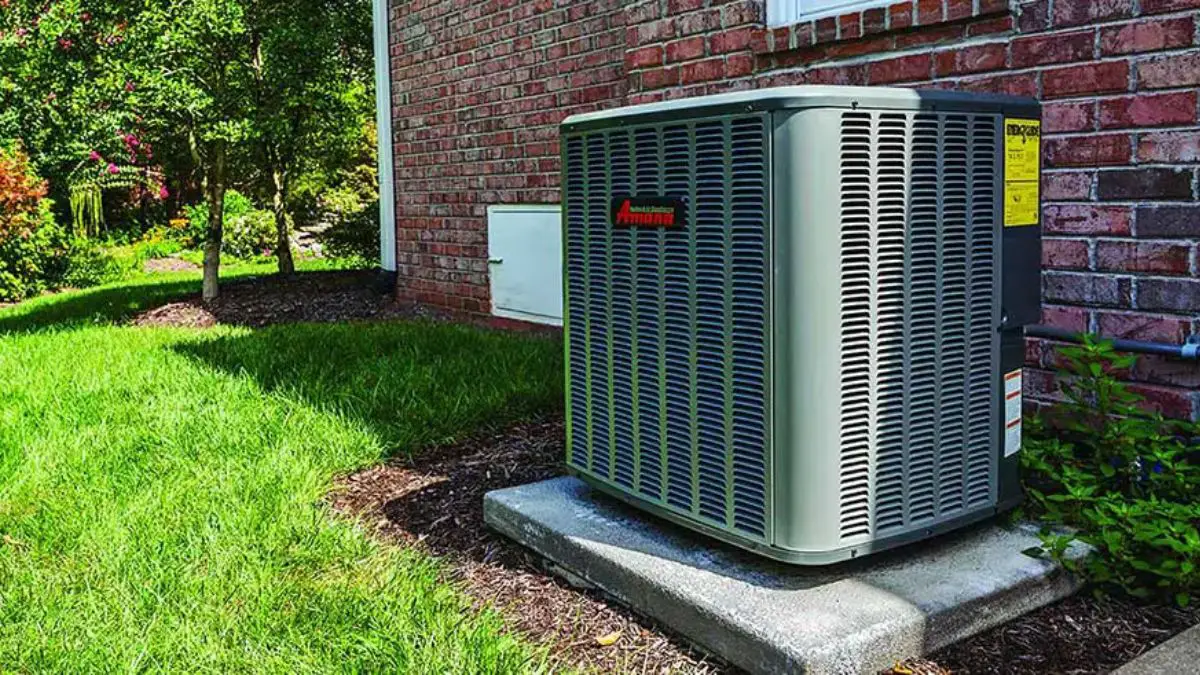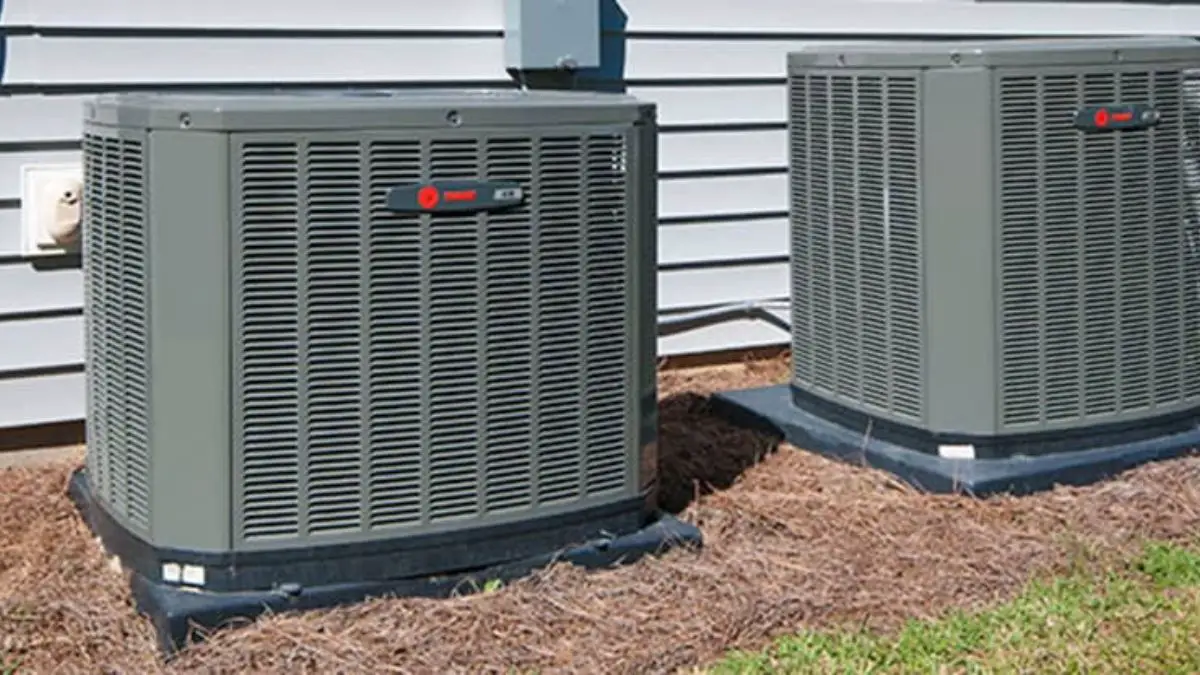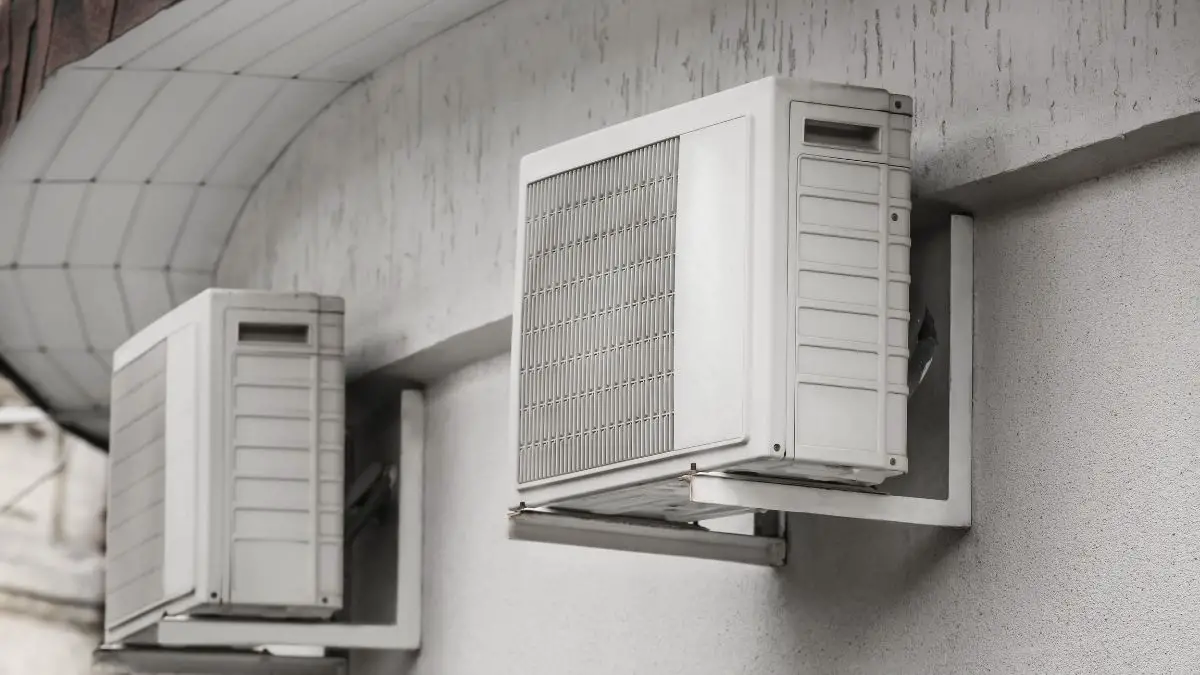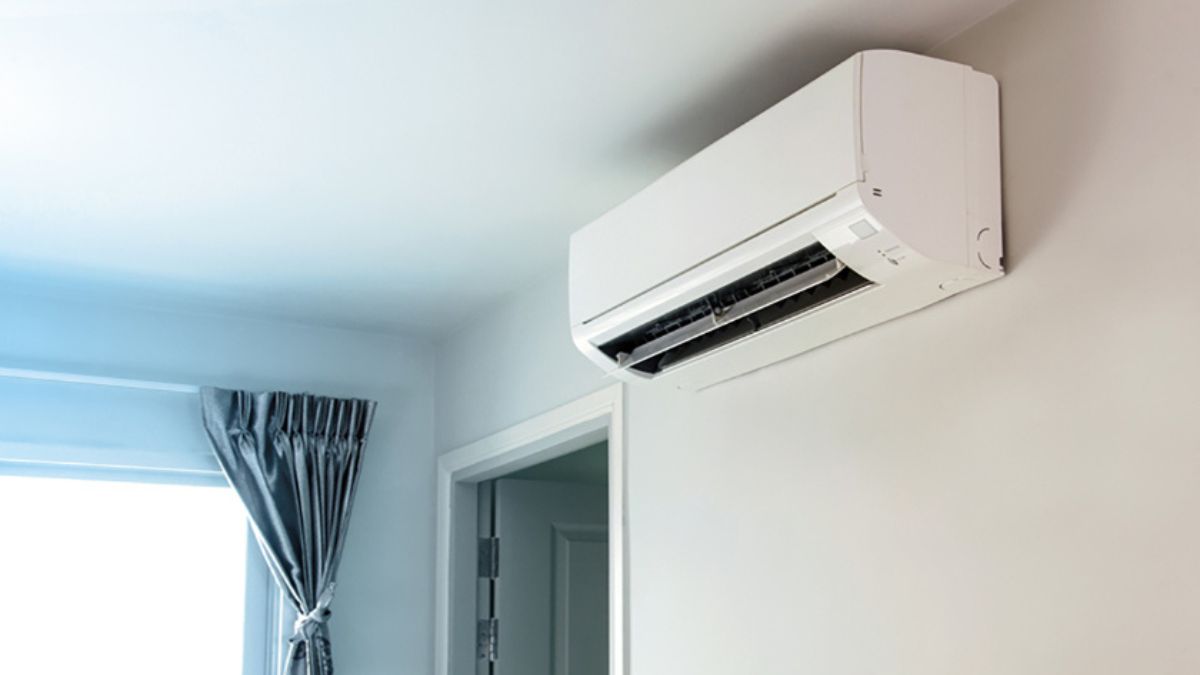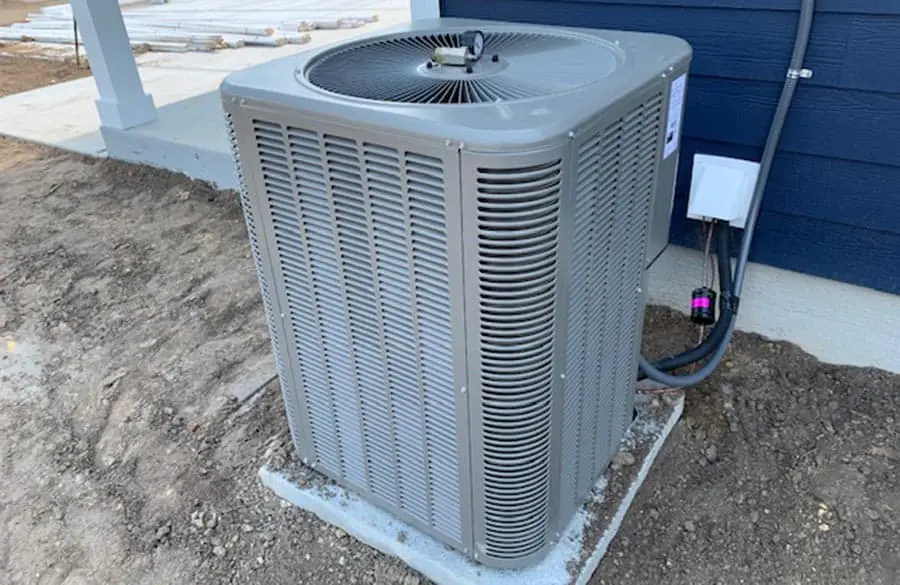
Heat pumps are an excellent, energy-efficient way of heating and cooling your home. They work by moving thermal energy from one outside air and transferring that heat indoors. However, while all heat pumps run on electricity, but some have gas furnaces that function as auxiliary heat in extremely cold weather.
If you have a heat pump and you’re not sure what type it is, there are a few ways you can go about identifying which one you have. Is a heat pump gas or electric? All heat pumps run on electricity and are equipped with a backup heat source. Since all heat pumps run on electricity, they are more energy-efficient to operate and are best suited for moderate climates. However, heat pumps start to lose efficiency when temperatures drop below 30 degrees. The question then becomes, what is the heat pump backup auxiliary heat source. Some heat pumps use an electric coil often called heat strips; while dual fuel heat pumps utilize a gas furnace for auxiliary heat.
Do you need a Licensed Heating and Cooling Contractor? We can help! [sherpa id=”20408d12″] from top licensed and screened HVAC in your area!
With that being said, the vast majority of heat pumps that you will typically come across are air-source electric heat pumps. These are usually the most cost-efficient options due to their size and ease of installation. Heat pumps can also be water-source or ground-source heat pumps.
If you’d like more information on water-source and ground-source heat pumps, we wrote an article, Which Heat Pumps Can be Installed Indoors? where we discussed the various areas that heat pumps can be installed. In this article, we will be specifically identifying whether your air source heat pumps has electric or gas auxiliary heat.
Heat Pumps Run on Electricity
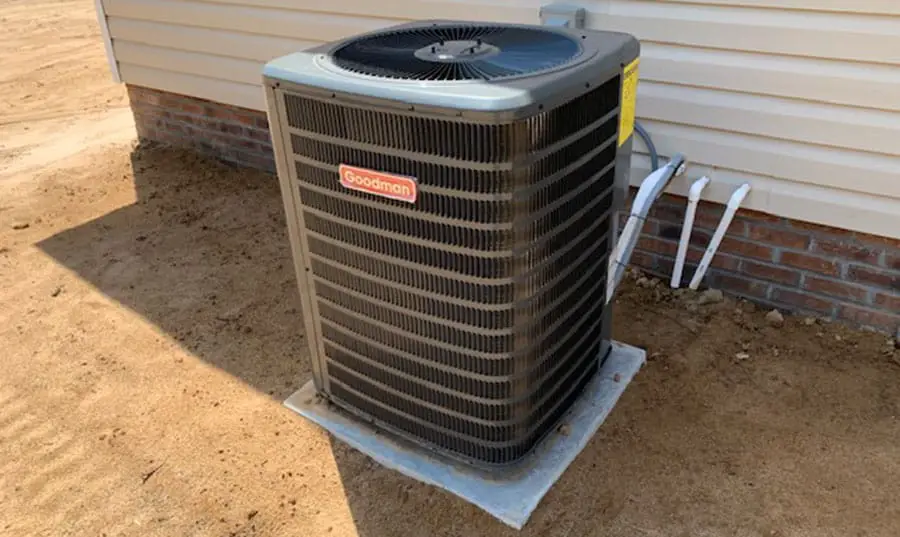
An electric heat pump is very energy efficient at temperatures above 30 degrees. The electric heat pump works well in this environment and can efficiently work to keep your thermostat around the desired temperature of 70 degrees.
Heat pumps work on the same principles as refrigerators and air conditioning units. They transfer heat using refrigerants and compressors. The heat pump sits outside of the house, transferring heat from the air. This heat is absorbed into a liquid refrigerant (R410a is now the standard), which, when compressed, significantly raises in temperature. Once the heat is released by condensing the refrigerant at high pressure, it can be used to heat the rooms inside the house.
Most modern units can cool and dehumidify the room during the summer months, as well as heating them during the winter. This makes them great for keeping the house a pleasant temperature all year round.
If living in a moderate climate where the temperature doesn’t drop to sub-freezing temperatures in the winter, a heat pump will work great. Although most heat pumps still extract heat from the air in minus temperatures, the efficiency drops, and they have to work much harder, using more electricity or fuel. Therefore, it is not as cost-effective in places where such low temperatures are ordinary.
In the video below, it demonstrates how the electric heat pump works and why they start to lose efficiency below 30 degrees. As auxiliary heat is engaged, energy usage rises significantly which can cause very high energy bills during the winter.
Do You Have A/C, Heat Pump, or a Dual Fuel System
What is an A/C System
An A/C or Air Conditioning system can be paired with an electric furnace or with a gas furnace. It uses electricity to cool your home in the summer and either electricity, natural gas, or propane to heat your home in the winter.
In manufactured homes, it’s common to have an electric furnace and an electric air conditioner. This is the most inefficient method to heat and cool your home because it does not utilize heat pump benefits. The electric furnace uses heat strips as it’s only method to heat.
More likely, if you live in an area where you have hot summers and extremely cold winters, you’ll have an A/C coupled with a gas furnace. In this scenario, the air conditioner cools in the summer and the gas furnace heats in the winter. In this scenario, the gas furnace will run regardless of outside temperature when the heat setting is engaged on the thermostat.
There are no heat pump benefits in either setup.
What is a Heat Pump System
We discussed this in more detail earlier but here’s a quick recap. A heat pump system is an electric heating and cooling system that is used in moderate climates where either no natural gas or propane service is available or no natural gas is present and the client doesn’t want a propane tank installed.
Heat pumps use an air handler that replaces the furnace and utilizes auxiliary heat when the outside temperature drops below 30 degrees.
Look inside the grill of the outside unit. If you see brass valves inside the unit this is called the reversing valve.
What is a Dual Fuel Heat Pump
Dual fuel heat pumps marry the energy-efficiency of a heat pump with the heating power of a gas furnace. This creates a system for maximum efficiency.
In a dual fuel heat pump system, the heat pump is utilized down to approximately 30 degrees. When needed, the gas furnace engages to provide heat quickly far more efficiently than electric auxiliary heat strips.
In recent years, there has been a push by the federal government to upgrade to dual fuel heat pumps. This comes in the form of tax advantages to help offset the initial cost of the installation.
While we won’t get into those tax advantages here, you can contact your tax accountant or local licensed heating and cooling contractor for more details.
We do have more information on dual fuel heat pumps available, see our article Are Dual Fuel Heat Pumps Worth It? What You Need to Know
How to Determine Which System You Have
Locate the Manufacturer’s Owners Manual.
If you are fortunate enough to have the owners manual, then it’s worth giving it a quick read. This will more than likely supply you with the information that you’re looking for.
More often than not, instruction manuals get lost or end up thrown away with the rest of the packaging. If you need the manual for this or any other reason, there will likely be a copy available online. Here’s how to obtain one.
Read the Data Tag
A great place to start is to check the data tag on both the outside and inside units. Each unit will have a data tag that will specify the manufacturer’s name, a serial number, and a model number. The inside unit will likely be located in a closet, mechanical room, basement, or attic.
Write down the manufacturer’s name and model number. Sometimes the type of system will be written on the outside data tag. It could say Air Conditioner or Heat Pump. This will only tell you part of the story. For the rest, we will need to head to the inside unit. But first, we have one thing to do.
Do a Google Search Online
If the label provides you with the manufacturer’s name and model number, let’s do a quick Google search (either on your phone or at your computer) for the term “manufacturers name model number manual or pdf”.
Most manufacturers have all their product manuals online now. If you don’t have the service manual this is a good way to obtain one. The service manual may tell you which system you have. I stress may because oftentimes the units are interchangeable.
Let’s Examine the Inside Unit
The inside unit will tell you a lot about the type of system you have in your home.
Is the Unit Gas, Electric, or Both?
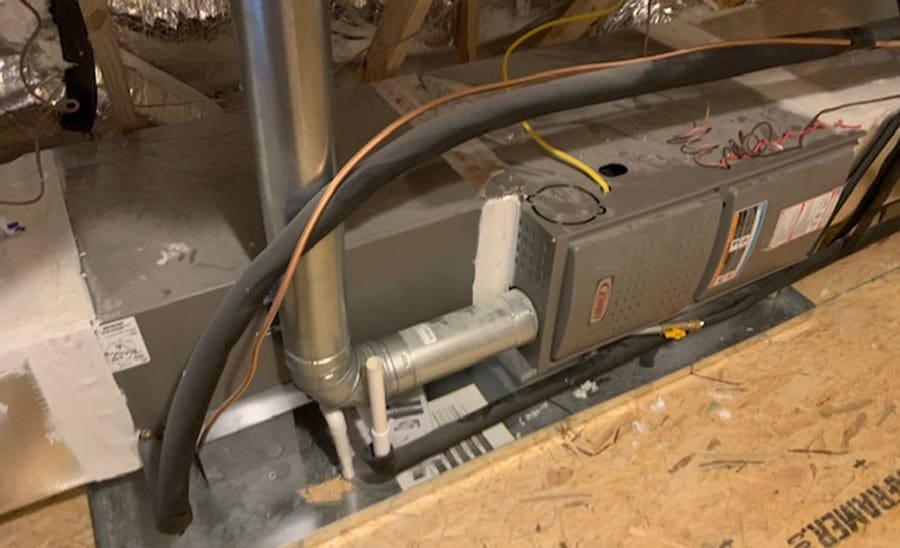
We already know the outside unit is electric. We need to determine if the inside unit is electric or gas. There are some immediate things to look for to determine if you have a gas or electric heating system.
- Does the inside unit have electric power running to the unit? Electric units will have electric power and a disconnect close by. If the inside unit is electric, then you have an electric heat pump.
- Is there a gas line running to the unit? Gas-fired systems will have a gas supply line running to the unit. This is what provides fuel the furnace to allow the burners to ignite and produce heat.
- Does the unit have a flue pipe for discharging fumes? This will generally be a metal pipe that runs outside. If your inside system has a flue pipe, it’s a gas-fired system.
- What does the data tag read? If the data tag on the unit outside says it’s a heat pump and you have a gas furnace inside, then it’s most likely a dual fuel heat pump system.
Call the Manufacturer’s Helpline.
I am sure that you will have already found the information you are looking for by carrying out any of the previous methods, but if you are still in doubt, or just want to make sure the information you have found is correct, I would suggest calling the supplier or manufacturer.
If you purchased the product from a local supplier, then you can contact them directly for the information. However, in cases where a previous owner installed the heat pump, it is unlikely that you will know who supplied the heat pump.
A quick internet search of the manufacturer’s name should provide you with a helpline number. If you can supply them with the name of your model, they should be able to answer any of your queries.
Lots of manufacturers now have online chat systems, which means you don’t even have to pick up the phone.
Get a Professional Look At It.
Another way of determining the type of heat pump you have is to ask a professional to take a look. This may be the only option if all else has failed or if you don’t want to take the front panel off of the unit. The only downside to this is that there may be a cost involved.
Insiders Tip: Rather than paying for a technician to come out to simply identify the type of system you have, why not ask for routine maintenance to be performed. It is recommended that systems be serviced annually, so it’s highly likely it’s due anyway.
In Closing
Electric heat pumps are by far the more common of the two due to their lower costs of installation and highly efficient energy costs. However, as we discussed, these benefits start to diminish the more extensive the area the heat pump is treating.
For identifying your heat pump type, start by checking the actual unit itself, both indoor and outdoor, for any clues as to what energy source it runs off. If that still doesn’t help, then your next best bet is to either open up the unit manually or contact your local technician for more advice.
Related Searches
Why does my heat pump not blow hot air? Electric heat pumps work by transferring heat from outside air to indoors through heat exchange. The main reason you heat pump is not producing hot air, may be you. Let me explain.
Our bodies have a temperature of 98.6 degrees. When it’s cold outside your heat pump may be functioning normally and producing 85 degrees. An output of 85 degrees is sufficient to regulate the indoor temperature over time. In our article 16 Reasons Your Heat Pump Doesn’t Blow Hot Air we address this and 15 additional reasons why your heat pump may not be producing enough heat.
Can I enclose a heat pump? Air source heat pumps need airflow to function properly. and while there are some clearance setbacks you need to adhere to, if done so correctly you can enclose a heat pump.
In our article How to Correctly Enclose a Heat Pump we discuss how you can hide a heat pump from sight or protect it from rain, snow, and ice and still ensure proper airflow around your heat pump.
Will a heat pump control humidity inside my house? Humidity can be brutal during the summer months. One of the benefits of a heat pump is its ability to help regulate indoor humidity when used properly. In our article How Heat Pumps Control Indoor Humidity in Your Home, we discuss how this happens and how it can make your home more comfortable during the dog days of summer.


